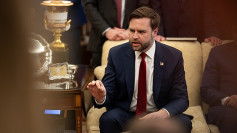There is good news for those looking for the chance of receiving another $1,400 stimulus check from the federal government. Beyond the three smaller stimulus checks we are aware of and which will be arriving soon, it appears that other such payments will be made as part of the three remaining Child Tax Credit stimulus checks.
Regarding the latter, the subsequent one will occur on Friday, October 15, a week from now. In addition to those six total payments for the Child Tax Credit, some of you will also receive a second stimulus check that has nothing to do with them. What you need to know about it is that it will arrive in 2022.
Who is Eligible For The Coming $1,400?
Who receives one of these new payouts or not depends on whether they give birth this year. According to Insider, parents who have a newborn child at any point in 2021 will probably qualify for a $1,400 stimulus payment in 2022. When they filed their federal taxes in 2022, they would receive the sum.
The current state of affairs makes it appear as though parents would also not receive the $1,400 payout. But anyone who has a kid in 2021 is probably also eligible for the temporarily increased Child Tax Credit. Because there is still a minimum income requirement.
The latter was made possible by the $1.9 trillion stimulus package from earlier this year, as we have now outlined on several occasions. However, depending on the child's birth date, for instance, if it occurs in late December? It would be too late for those parents to request a refund of the monthly Child Tax Credit stimulus checks for this year, as per BGR.
Key Components
According to the proposed legislation, taxpayers earning up to $75,000 per person or $150,000 per couple would get direct payments of $1,400. Above that point, the checks phase out and stop altogether at $100,000 for an individual and $200,000 for a couple. It would increase state payments to $400 per week from their existing $300 level and extend chronic unemployment benefits for gig workers and the long-term jobless until August.
Along with funding for schools, a temporary enhancement of the Child Tax Credit, and a temporary subsidy for health insurance premiums, the law also includes funding for Covid-19 immunizations, testing, and care.
Progressives in the Senate and the House are pleading with Democratic leaders to keep fighting for the minimum-wage increase, either by changing the Senate's rules or reworking the proposal to qualify for budget reconciliation.
Since all Senate Republicans are anticipated to vote against the relief plan, Democrats will need all 50 of their senators to approve it. Two Democratic senators, Kyrsten Sinema of Arizona and Joe Manchin of West Virginia, have stated that they oppose the proposed $15 federal minimum wage.
After Senate Finance Committee Chairman Ron Wyden pitched a 5% payroll tax on such businesses, Majority Leader Chuck Schumer is considering whether to impose a fine on large corporations as a means of requiring higher wages. Republican party members and business organizations have already reacted angrily to the proposal.
Moderate Democrats may be reluctant to support a minimum wage workaround due to the lobbying and political risk involved. The White House and other influential individuals, like House Ways and Means Chairman Richard Neal, have not yet embraced the idea in a big way.
There may be further changes that need to be made to the virus-relief bill. The Senate parliamentarian's decision on pension and health insurance premium subsidies is still up for debate, and Wyden is arguing for the addition of an extra month of jobless benefits. The total deficit increase in the plan, $1.93 trillion, is almost $40 billion higher than the cap Democrats set for themselves in the budget they passed earlier this year, Lux Times reported.






